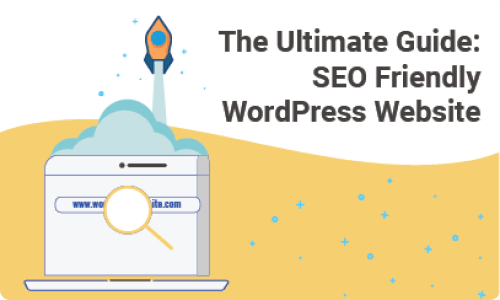Slow Loading
Non-responsive design
You want your website to load quickly and work well on all devices. In a world where time is money, you should always strive to ensure your website is free from problems to prevent long-term repair work down the line.
One of the easiest ways for sites to get lost in the spiderweb of other sites is to have a non-responsive design. Non-responsive websites look bad and slow on all devices. They distract users from your content and can make SEO jobs harder.
WordPress is one of the most popular website platforms that exist, and a considerable part of its success comes from its flexibility and open-source nature. However, one of its biggest problems is SEO. Many sites out there use pre-existing templates and populate their content after the coding is done.
This means that when someone searches for something related to your keyword, Google will show different sites that aren’t your own. Plugins such as SEO Builder help populate your pages with a more generic version of HTML and add countless other functionalities such as widgets and image upload. If you want to get more traffic to your blog but don’t want to spend too much time writing content, upgrading to a premium WordPress theme might be the way to go.
URL structure
In the early days of blogging, many people built their websites without thinking about the proper structure for their content. Today, thanks to more experienced bloggers, we know that having well-organized content can make a huge difference regarding how many visitors see your blog – but it’s not just the structure of your content that’s important. In addition, due to the increasing popularity of WordPress and e-commerce websites, there’s never been a better time to start optimizing your site’s URL structure for better website search results.
XML sitemap
Is your WordPress website running old software, or does it have missing features? XML sitemap files tell search engines where to find your content. If your WordPress is not up to date, your website could be missing vital information that could otherwise support higher traffic from search engines. It’s easy to make these kinds of mistakes when you’re new to operating a website. Still, with time and experience, you’ll learn to pay particular attention to the assets you use most often and make sure they work well for both users and potential clients.
Title tags
Improper title tags are one of the most frequent barriers to ranking your web pages. Title tags are important. They tell search engines what type of content to show when someone searches for a term. Using improper titles can put your website at risk of not ranking well for certain search terms, which will cost you SERP points.
Meta description
In WordPress, the meta description is used to describe pages on your website that might interest search engines. The meta description is also used by visitors when deciding which page to visit and what content to read on a given page. Indeed, if your WordPress website has few other pages with related content, then the description may not benefit them.
Google rank
It’s simple to build a website that’s easy to search for but harder to get Google to rank it well. What does this have to do with blogging? Everything! If you’re starting a blog from scratch or looking to improve an existing one to rank higher in organic search results, you must understand how many keywords you need to rank well. You don’t need to be a pro at keyword research. But, when you go looking for a list of keywords, make sure that the ones you’re focusing on are really worth targeting — and that they’re more likely to bring you traffic than any other potential keyword in your list.
Duplicate content
Duplicate content is a problem that affects many WordPress sites. From attracting new web visitors and backlinks from search engines to keeping outdated pages online for educational or other altruistic purposes, duplicate content can be problematic. Issues with duplicate content can crop up at various stages of the production cycle for your website. With WordPress SEO, you can minimize these issues by making sure that you manage your local copies of plugins and themes consistently.
Finally,
Contact us at info@engagebranding.com for more information and queries related to this blog.



